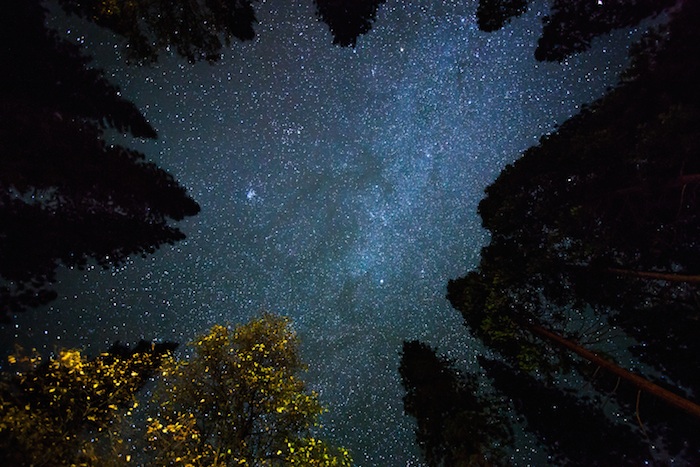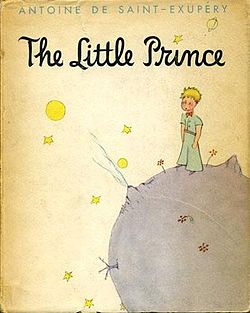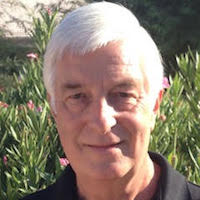
Many people have had the experience of feeling like they lose themselves in relationships.
I know that, for a very long time, I did.
But the other side of the equation is that relationships also have the potential to make more of us.
”Each friend represents a world in us,” observed Anais Nin, “a world possibly not born until they arrive, and it is only by this meeting that a new world is born.” Such is the nature of human existence that rarely do we become truly ourselves in isolation.
It takes connection to bring out the fullness of who we are.
In Antoine de Saint-Exupery’s 1943 book The Little Prince-–still one of the world’s bestselling books —the little fellow who has come to Earth from the skies surveys a field of 5,000 roses. He has a special rose back on his planet, and he tells the field of roses that they are “nothing at all yet” because no one has tamed them or been tamed by them.
The story of the Little Prince illustrates how growing up spiritually incorporates allowing a wholeness to emerge in our lives in response to the countless situations, whether enjoyable or challenging, that life plunges us into. At the same time, becoming whole as a person also leads from isolation and loneliness to an experience of oneness with everyone and everything.
The point is that as we become aware of ourselves as an aspect of a oneness that permeates the cosmos, in no sense does transcending our separateness involve a loss of our individuality. On the contrary, the journey from isolation to connection involves not the diminishing of who we are but the further development and sharing of who we are.
The Little Prince teaches us that it’s possible to experience our oneness with everything and everyone only to the degree we maintain a strong sense of our uniqueness. He also affirms Anais Nin’s insight that, paradoxically, becoming an individual with a strong identity can’t happen in isolation—we need others to bring out our fullness.
When we have to deal with a partner, a friend, a colleague at work, or someone on a sports team or social committee, we have an opportunity to discover how much of our essential self we have or haven’t so far developed. It’s in relationships—of every kind, but especially the really close ones—that we find out what we’re “made of.”
Until we go deep with someone, we’re really “nothing at all yet,” as the Little Prince puts it—at least, not compared to the person we have the potential to become.
A relationship invites us to risk bringing into our everyday lives those parts of ourselves we have long kept under wraps. It asks us to complete the work of growing up that wasn’t completed in childhood, so that we learn to relate in mature ways instead of in the infantile, limiting ways to which we often resort.
It’s often said that no one can do our growing for us, which is I’ve certainly found to be the case. However, much as we may grow on our own, we don’t come up against the real challenge of being fully ourselves until we embark upon a deep connection of some sort or other.
The challenge is to be truly connected to another yet not lose ourselves in the relationship. But to really be true to ourselves and not sell ourselves out as the relationship becomes more important to us, and we therefore don’t want to rock the boat, isn’t easy.
We can become so concerned about losing a partner, a parent, a friend or a job that, to keep things on an even keel, we compromise ourselves. This is how we begin losing ourselves in relationships, which is the death knell of the meaningful connection for which we long, especially in the case of romance and passion. It’s what happens with countless couples, as well as family members and friends.
To illustrate how a relationship can either cause us to lose ourselves and hence become unhappy or expand our sense of ourselves and thus add to our joy, the Little Prince points us to the stars. His star, which is really only an asteroid, is too small for him to pick it out in the night sky. This doesn’t disappoint him, though. In fact he tells the pilot that it’s better that way, since he’ll end up looking at them all. His point is that truly valuing one star prepares us to appreciate our oneness with all of them.
Now this translates to people. We can’t appreciate all the people of the world as individuals—after all, it’s impossible to get to know more than a handful really well. But if we become deeply connected to a few special people, through this connection our heart is awakened to feel a commonality with everyone. In loving one person well, we are participating in a universal love that flows through all. Our unique connection with this person is representative of the connectedness of the whole of reality.
We know the many through the one.
The Little Prince imagines the stars as bells in the sky ringing out their songs of joy. The way he sees it, the more deeply we are connected with one special star, the more we feel ourselves to be connected to an entire sky full of joyously tinkling bells.
Whether the fundamental joy the little prince envisions as basic to the cosmos is allowed to well up and burst forth in our everyday experience is a choice we make in each moment, moment by moment. Each of us either becomes more “me” with every choice we make, and therefore able to be closer to another, or we let fear of losing ourselves cause us to close off, thereby limiting our joy.
So the question this charming story of a pilot’s encounter with the Little Prince poses is: How deeply are we willing to be connected to someone significant, while being absolutely true to ourselves—and never either selling ourselves out or pulling back from the connection?
The degree to which we can maintain our sense of self in an ever-deepening proximity to another is directly proportional to the degree of joy we will experience.
So the real question is, how much joy are we willing to allow into our lives?
How much happiness can we tolerate?

“Tolerate” might seem a strange term to use. But the fact is, most of us exist in a rather mediocre state of homeostasis. We maintain an even keel that feels “sort of okay.” We’re comfortable with it. It’s not ecstatic, not rapturous, but it’s “all right.” We might even describe ourselves as “fairly happy.”
The challenge the Little Prince poses is to grow ourselves into a bigger person who can connect more deeply, and hence for whom life becomes deliriously happy.
We are no longer content to simply “get by.” There’s not a bone of mediocrity in us. Instead we dance through each day.
Little children are generally deliriously happy unless something is wrong. This is why the story of the Little Prince has a lot to say about the child’s heart that’s buried in each of us. It’s really sad that the excitement we all started out with gets crushed. We become so used to feeling “sort of okay” that we completely forget how ecstasy and rapture are even possible.
The question the Little Prince poses for each of us is: Am I willing to tolerate the degree of joy that can become my everyday state if I allow my relationships to push me to become more fully myself? The pilot’s reticence pictures how each of us resists the exuberance, the zest for life, the playfulness, the sheer rapture of—in the words of the Little Prince—“all the stars laughing.” We’re afraid to be that happy.
It’s disturbing to be pried loose from mediocrity. We all enjoy moments of happiness, but an extended experience of ecstasy is something we can hardly stand, unaccustomed to it as we are—a reality that the poet William Wordsworth pointed to in Tintern Abbey, where he wrote of “a motion and a spirit, that impels all thinking things, all objects of all thought, and rolls through all things.” What effect did encountering this universal mystery have on Wordsworth? He recalls, “And I have felt a presence that disturbs me with the joy of elevated thoughts.” Such a deep joy “disturbs” us. It troubles us, makes us uncomfortable, anxious, which causes us to resist it.
In fact, another poet, Denise Levertov, spoke of this immense joy that seeks to well up within us as a “terrible joy.” The very happiness we seek is threatening to us when we’ve been detached from it for so long.
Are you wedded to the disappointments and pain of your past, or are you ready to take the journey of learning to relate closely while not losing yourself? Are you willing to tolerate the anxiety you’ll experience if you allow yourself to connect so deeply to another, or others, that the experience expands your capacity for joy?
Are you willing to go through the terrifying prospect of real intimacy in order that you might laugh with the stars?
The Little Prince says the pilot will feel like laughing with him, and so he’ll open his window “just for the fun of it.” What’s the meaning of life? Quite simply to grow up spiritually to the point we live for the sheer fun of it. The moping and misery of mediocrity are banished. Life becomes laughter. Indeed, we’re really “nothing at all” until we’re willing for this to become so for us.
When the pilot tells his friends that the stars make him laugh, they’ll think he’s crazy, says the Little Prince, who adds, “It’ll be a nasty trick I played on you.” It’s a nasty trick because a person who’s full of joy becomes the odd one out. You see, few of us live in a state of ecstasy, rapture. The average person, even if relatively content, isn’t accustomed to feeling their inherent joy. For instance, how many smiling faces do you see on the people walking the busy streets of our cities? How much laughter do you hear? When someone is truly happy for no particular reason, it feels odd. It makes us uncomfortable. We think they’re strange.
Life isn’t meant to be just “okay.” It’s meant to resound like a sky full of little bells, each of them ringing out its own joyful music. So many of us limit ourselves, tell ourselves “not to expect too much,” to settle for what’s “reasonable.”
The Little Prince invites us to journey far beyond these horizons. He wants us to reach for the stars, for “all the stars are laughing.”
Author: David Robert Ord
Editor: Renée Picard
Photo: Taylor Leopold at Unsplash










Read 11 comments and reply